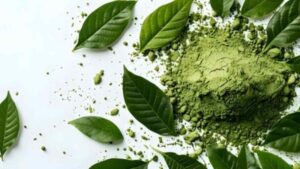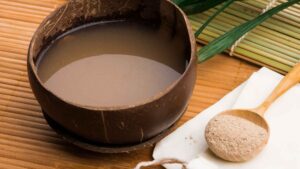Users who consume Kratom report different effects on hunger, given that their appetite either intensifies or diminishes. Many individuals question whether kratom increases hunger because reports show contradictory eating behavior among users.
Several factors, such as the strain type and dosage amount, together with individual body chemistry, influence how kratom affects appetite. Therefore, the answer remains unclear.
A thorough analysis must happen between kratom alkaloids and their influence on bodily processes to understand their interaction with hunger signals.
Red vein strains used by some kratom consumers often activate appetite, whereas white strains used by other consumers might produce hunger reduction for a limited time.
In this blog, we will explore the mechanisms through which kratom affects hunger control, together with its impact on digestion and metabolism, so you can gain insights about its feeding-related effects.
Understanding Kratom
Kratom or Mitragyna Speciosa serves as a tropical tree species that reaches its highest levels of abundance throughout Southeast Asian territories. Both Papua New Guinea and Indonesia, along with Malaysia and Thailand, and Myanmar, make up the locations where this substance naturally grows.
The leaves of this tree serve a medicinal purpose, as users believe they possess beneficial properties. The leaves of this plant serve multiple functions since their therapeutic properties benefit medicine while their recreational properties appeal to users for non-medical purposes.
Among these strains are white types alongside red and green versions. Long-standing natural usage of kratom has been evolving into widespread adoption in recent years.
The marketplace offers several forms of this product, including gummies along with capsules, powder, extracts, tinctures, and multiple additional variations.
How Kratom Affects the Appetite?
Scientific investigations demonstrate that Mitragyna Speciosa fails to establish hunger increases in users. People who consume Kratom claim to experience improved appetite effects, although there is no scientific evidence showing such results.
A minority has reported that Kratom served to control their hunger. Secondary and indirect changes in appetite result from taking Kratom when Mitragynine and 7-hydroxymitragynine compounds interact with brain receptors.
Somebody changes stem from this substance interacting with brain receptors. The effects of this substance vary between users, while the performance depends on age and body weight, plus medication dosage and strain type, and individual physiology.
Possible Reasons Kratom May Increase Hunger
- Opioid-Like Effects: Some opioids are known to stimulate appetite, and kratom’s alkaloids have mild opioid-like properties.
- Blood Sugar Impact: Some users report cravings for sweets after taking kratom, possibly due to changes in glucose metabolism.
- Relaxation & Comfort Eating: Kratom’s calming effects might lead some users to eat more out of habit.
Why Some People Feel Less Hungry on Kratom?
- Stimulant-like effects (especially with white and green strains) may suppress appetite.
- Nausea or digestive discomfort (at higher doses) can reduce hunger.
- Increased focus may distract from food cravings.
Why Do People Feel Hungry After Taking Kratom?
The consumption of Mitragyna Speciosa fails to produce an appetite directly. Kratom may trigger hunger when it accelerates your metabolic rate. Body hunger develops because hormones and chemicals inside the body reach equilibrium.
Both environmental elements and physiological factors trigger our desire to eat. We should analyze possible contributing elements that will be discussed here.
1. Internal Factors
- The urges in the body for more energy
- Hormonal changes
- Disturbance in the hunger regulation system
2. External Factors
- The aroma and appearance of food
- Small details about the food, like how it is presented
- Timing of the meal
Can You Take Kratom to Boost Your Appetite?
Each user experiences appetite changes differently since the drug has no specific hunger-stimulating properties. The effects of Mitragyna Speciosa differ between users because some experiences remain exclusive to certain individuals.
Many substance users report losing their appetite after using this substance. One cannot determine whether they should consume Mitragyna Speciosa to enhance appetite because the effects vary among users.
Is It Normal to Be Hungry After Taking Kratom?
Each person experiences different effects of using Mitragyna Speciosa. The effects of this substance differ between individuals because they depend on specific variables such as individual age and weight, and body metabolism rates.
The experience of hunger after using this substance should be seen as typical. The widespread reduction of appetite after using this substance helps various individuals who want to reduce their weight. Speaking with a doctor should be your first step before obtaining this herb.
Can Kratom Help You Lose Weight?
A large number of users report that the supplement helps them achieve weight loss objectives. No experts have verified this effect through research.
Kratom cannot serve as a treatment for appetite control; therefore, you should not consider using it as a method to control hunger. Savors indicate that the brain receptors within the body respond to this substance by producing signals that cause feelings of fullness. The brain signals do not trigger hunger pangs.
How Does It Help With Weight Loss?
People who use the product report that they experienced a sense of fullness and their hunger disappeared after they consumed it.
The reason for this logic shows differences between strains, although there exist specific acceptable explanations that support it. This text examines several possible reasons in detail.
1. Energy Boost
Kratom entered human life in ancient times because it gave users additional energy. Kratom proved beneficial to workers as a tool for their needs. Weight loss requirements demand exact food management in combination with regular exercise routines.
Mitragyna Speciosa functions as an agent that boosts energy throughout the body. The outcome of this provides people with workout capabilities.
2. Metabolism Boost
After obtaining enough energy, you can choose among walking, exercising, or running, which leads to an increase in your metabolism. Consequently, you will lose weight.
3. Anti-Appetite Therapy
Some strains within this category possess properties that help suppress hunger. Your hunger decreases when you use these substances because reduced food consumption results in weight reduction.
Kratom Effect On Digestion System
Beyond hunger, kratom can affect digestion in different ways:
- May slow digestion (similar to opioids, which can cause constipation at high doses).
- Can cause nausea if taken on an empty stomach (which might reduce appetite).
- Some users report improved gut comfort at low doses, while others experience bloating
How to Manage Appetite While Taking Kratom?
If you’re concerned about kratom affecting your hunger, try these tips:
- Choose the right strain: White for appetite suppression, red if you need to eat more.
- Time your doses: Take kratom after meals if it makes you too hungry.
- Stay hydrated: Dehydration can mimic hunger signals.
- Monitor portions: If kratom increases cravings, opt for healthy snacks.
When Should You Take Kratom?
Many users say from their experience that when you take Mitragyna Speciosa on a full stomach, you don’t experience all the effects, and also, the effects are experienced slowly.
So, what seems right to them is taking it on an empty stomach so it kicks in fast, and so you experience the maximum effects. Moreover, it is also stated that upon taking it after heavy meals, people develop tolerance.
Final Thoughts
Kratom’s effects on hunger vary significantly from person to person, largely depending on strain type, dosage, and individual physiology.
While some users experience increased cravings, particularly with relaxing red strains, others find that energizing white varieties temporarily suppress their appetite.
These differences highlight kratom’s complex interaction with the body’s digestive and metabolic systems, making it difficult to predict exactly how it will affect any given user’s hunger levels.
The most reliable approach is to pay close attention to how your body responds to different strains and doses. Keeping a simple journal tracking which varieties affect your appetite can help you make informed choices about when and how to use kratom.
Remember that staying hydrated and maintaining balanced nutrition remain important regardless of kratom’s temporary effects on your hunger signals.
More Readings For You:






















